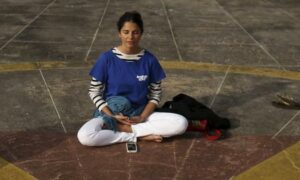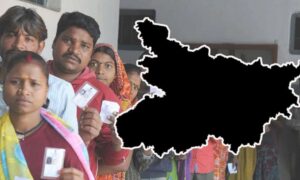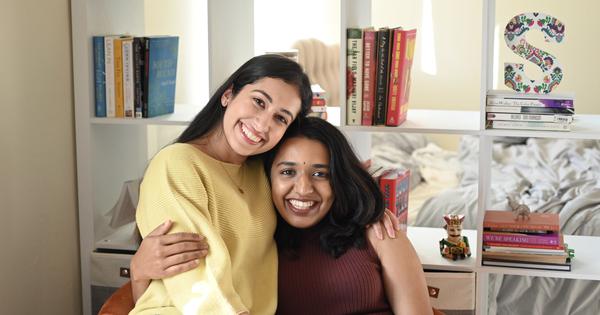
In August 2020, friends Mishika Narula and Srisruthi Ramesh created Brown Girl Bookshelf (BGB), a platform and growing community dedicated to celebrating South Asian literature. What began as a shared love of recommending books to one another has since evolved into a dynamic space that spotlights the richness and complexity of South Asian narratives, both within the subcontinent and across the diaspora.
With curated book lists, original reviews, and thoughtful commentary, BGB has become a trusted source for readers seeking stories that reflect the nuances of South Asian identity. As the platform marks its five-year anniversary, Narula and Ramesh reflect on the books that shaped them, the storytelling that continues to draw them in, and the moment they realised they were building something bigger than just a bookshelf.
Mishika Narula (MN): Let’s start where we always do – with a book. Do you remember the first book I recommended to you? Do you remember how you felt about it?
Srisruthi Ramesh (SR): Yes, A Place for Us by Fatima Farheen Mirza. I remember going into it with really high expectations, since we usually align on book taste, and honestly, I was a little nervous it wouldn’t live up to the hype. But it absolutely did. It was such a gorgeously written, wrenching book. The characters emerge slowly as though the readers are building a slow friendship with each.
MN: Do you remember the moment we realised we were doing more than just recommending books?
SR: It’s funny, because I think that realisation came earlier than we were ready for. In the beginning, we didn’t expect BGB to be anything beyond sharing South Asian authored work with our friends and family and maybe a handful other people. But in that first year, thousands of strangers followed us. I remember having a conversation at that time about what we wanted this to be. And we actually said we wanted it to be strictly a platform, not a community. At the time, “platform” felt more manageable, something we could scale or sustain more easily. “Community” felt like something that was harder to build through a screen.
But, in five years, it happened anyway. We kept getting messages from South Asian readers and writers who said BGB made them feel seen or encouraged them to put their work out there more given the audience eager to receive it. That audience formed itself before we even claimed it. And over time, we realised that was the real gap we were filling. People weren’t just looking for book recommendations. They were looking for somewhere their story belonged.
SR: We’ve always said we’re drawn to a certain kind of storytelling. But what is that kind of story?
MN: We both read pretty widely, but one through-line has always been memoirs. We’re drawn to stories where someone is telling the truth about their life, even if it’s quiet or messy. That instinct has shaped BGB from the start. We’ve always wanted to celebrate the range of South Asian identities, not just across cultures or countries, but across moods, genres, and lived experiences. That, in itself, is a kind of truth-telling. So much of what gets marketed in our stories leans into trauma or tropes. But where’s the joy? Where’s the softness? We want that full spectrum. Joyous stories, complicated ones, and everything in between.
SR: Which titles are you’re excited to read in the second half of the year?
MN: Speaking for both of us, I think we’re especially curious about Mother Mary Comes to Me by Arundhati Roy. She doesn’t publish often, and when she does, it feels like a literary event. We’ve read her essays, her fiction, her speeches, but a memoir feels like something else entirely. I am interested in that space between the public voice we know well and the private one we rarely get to hear from.
Separately, I am overdue to read Saraswati by Gurnaik Johal. I was on a panel with him earlier this year, and there’s a calm intensity to the way he thinks and communicates that really stayed with me. From what I’ve read about it thus far, the novel sounds expansive. Part family saga, part reflection on Hindu nationalism, threaded through with concern for the earth, its destruction and preservation, it sounds ambitious, asking big questions without shouting.
MN: Let’s gush. Which books have truly stayed with you this year?
SR: I am lucky that many books this year have been those ordinary, quiet stories that weave together longing, self-discovery, and the human condition. Most of them have been memoirs, in some capacity.
The True Happiness Company by Veena Dinavahi was resonant, which is surprising, because it’s a cult memoir. In sharing her shocking story of joining and then escaping a self-help cult, Dinavahi completely reframed how I thought about the power of manipulation and the radical act of reclaiming your voice on the other side of it.
Another memoir, in a sense, was Searches by Vauhini Vara. It’s also business and technology nonfiction, which somehow, Vara makes feel intimate. In an unexpected combination, she treats conversations about grief and the societal impacts of technology, capitalism, and AI with clarity and care.
In They Called Us Exceptional, I found language for something I hadn’t seen written about with such precision: the loneliness of estrangement in South Asian culture. Prachi Gupta shares an incredibly vulnerable story to expose how model minority pressures and masculinity can unravel trust and safety in a home.
I read Homeland Elegies by Ayad Akhtar this year, a 2020 novel I only just caught on to. I was floored by the way it held contradiction: the desire to belong to America and the impossibility of it, especially for Muslim immigrants. The narrator’s voice takes you through dream sequences, identity crisis, financial collapse, and post-9/11 racism, and still somehow feels completely coherent.
SR: Social media has definitely changed how we discover books, but do you think it’s also shaping how we read, and what kinds of reading get valued?
MN: There’s a lot of energy online around fast reads and big numbers, especially around moments like mid-year check-ins or end-of-year wrap-ups. And I get it. There’s something satisfying about setting a goal and hitting it, and it can be motivating and joyful to make reading a habit in that way.
But sometimes the pressure to read a certain number of books, or to always have something new to post, makes it harder to sit with the slower, more demanding reads. Some of the books that we’ve loved this year, like Searches by Vauhini Vara or The Loneliness of Sonia and Sunny by Kiran Desai, ask for your full attention. Searches might initially seem like niche, dense non-fiction for the tech industry until you get deeper into it. Desai’s novel is nearly 700 pages and opens with a family tree, which is an early sign of the scope and complexity to follow.
I don’t think there’s one right way to read. But I do think we need to talk more about the kinds of books that take time, even the ones that ask for a reread.
MN: We’ve had DMs from readers in Sri Lanka, India, Canada, etc. What’s the most unexpected joy of building this international community?
SR: I think we both assumed at some point we’d get pushback like, “You’re from the diaspora, you don’t understand the real South Asian experience.” But that hasn’t happened. And that’s been such an unexpected joy. Instead of division, we’ve seen this incredible sense of connection from readers around the world in Sri Lanka, India, Pakistan, Canada, the UK – just people who resonate deeply with the stories we’re sharing. It’s been a reminder of just how much common ground exists across borders, and how books help illuminate that.
What’s also been humbling is realising we don’t represent every community or identity, and yet, we get to help surface stories that do. Readers have reached out saying things like, “I’ve never read a book by a Muslim woman with her own love story,” or “This is the first novel I’ve read that’s set in Kerala, where my family’s from.” Sometimes a book heals a small part of someone who’s long been minimised or stereotyped.
We still have so far to go. We recently asked on Instagram what narratives people still want to see, and we got hundreds of responses for every narrative and intersections of identity – requests for West Indian diaspora stories, about tribal communities, stories of divorcees or single parents, immigrants in the Middle East, or independent women living in India. The community doesn’t just consume what we share; they shape it too. That’s been the most rewarding and surprising part: how expansive this space has become, and how ready people are to keep growing it with us.
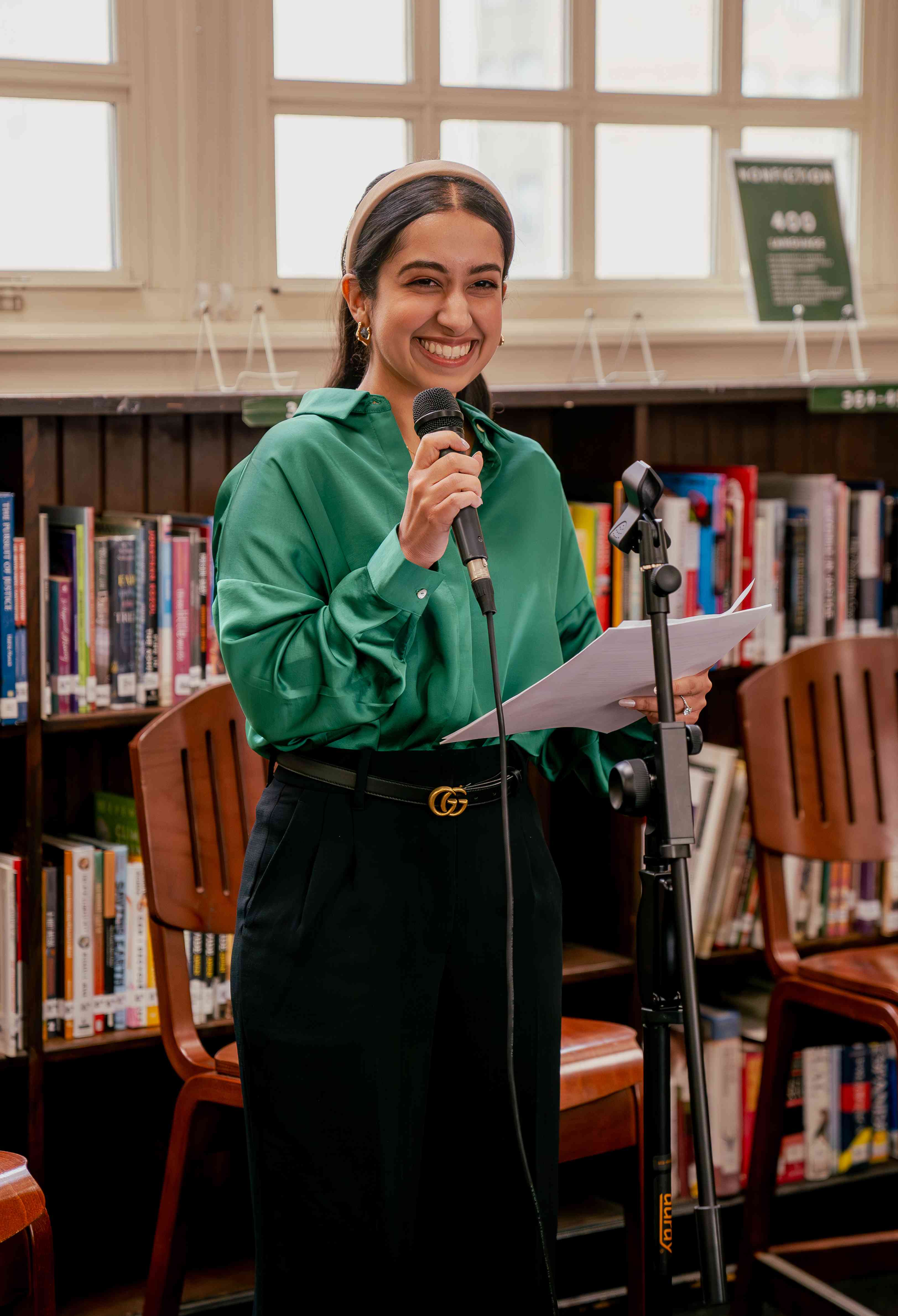
MN: What’s a conversation we’ve had off Instagram that you wish more people could hear?
SR: We talk a lot about the responsibility that comes with running a fairly visible digital platform, like how to represent authors fairly, even when a book doesn’t personally resonate with us. We made a deliberate choice not to post negative reviews, and built out our guest reviewer model to include more perspectives both in the number of books shared but also the genres, writing styles, and topics that might connect deeply with someone else other than us two.
We’ve also thought about how to share sensitive or deeply personal stories, ones that touch on identity, trauma, or current events, with care. In some ways, those are the most important topics to bring out of the dark and heal in the light, but can also be triggering or spark strong emotions to just encounter on your feed. So we talk about how to use our platform and reach for social good while also keeping it about the books. That kind of intention shapes everything we do, even if it’s not always visible.
SR: What’s something people often misunderstand about what we do – and what would you say instead?
MN: People sometimes assume we’re a platform for women readers and authors only, and I get where that comes from. But the “girl” in Brown Girl Bookshelf really just reflects the two of us: we’re two South Asian women running the platform. That doesn’t mean our community is limited to women writers or readers. We’ve also heard assumptions from being on social media where there are other “brown girl” monikers that we are perhaps not interested in “serious” literature, which, if you consider the books we’ve mentioned, even just in this conversation, this is far from. From the start, we’ve read and recommended stories across all genders and identities. This space has always been for anyone who believes in the importance of expanding how South Asian stories are told. We want to broaden the conversation, not narrow it.
SR: If you had to describe the future of Brown Girl Bookshelf in one sentence, what would you say?
MN: We see BGB evolving into a platform that not only champions South Asian literature but also serves as a thought leader – contributing essays, reviews, and cultural commentary to literary and mainstream publications, and shaping how these stories are read and remembered.
That’s a mouthful, but the aspiration is clear. We’re really grateful that a small idea between two friends has grown into something people trust, return to, and see themselves reflected in. That part will always matter most, and we’re here to remind each other of that along the way.
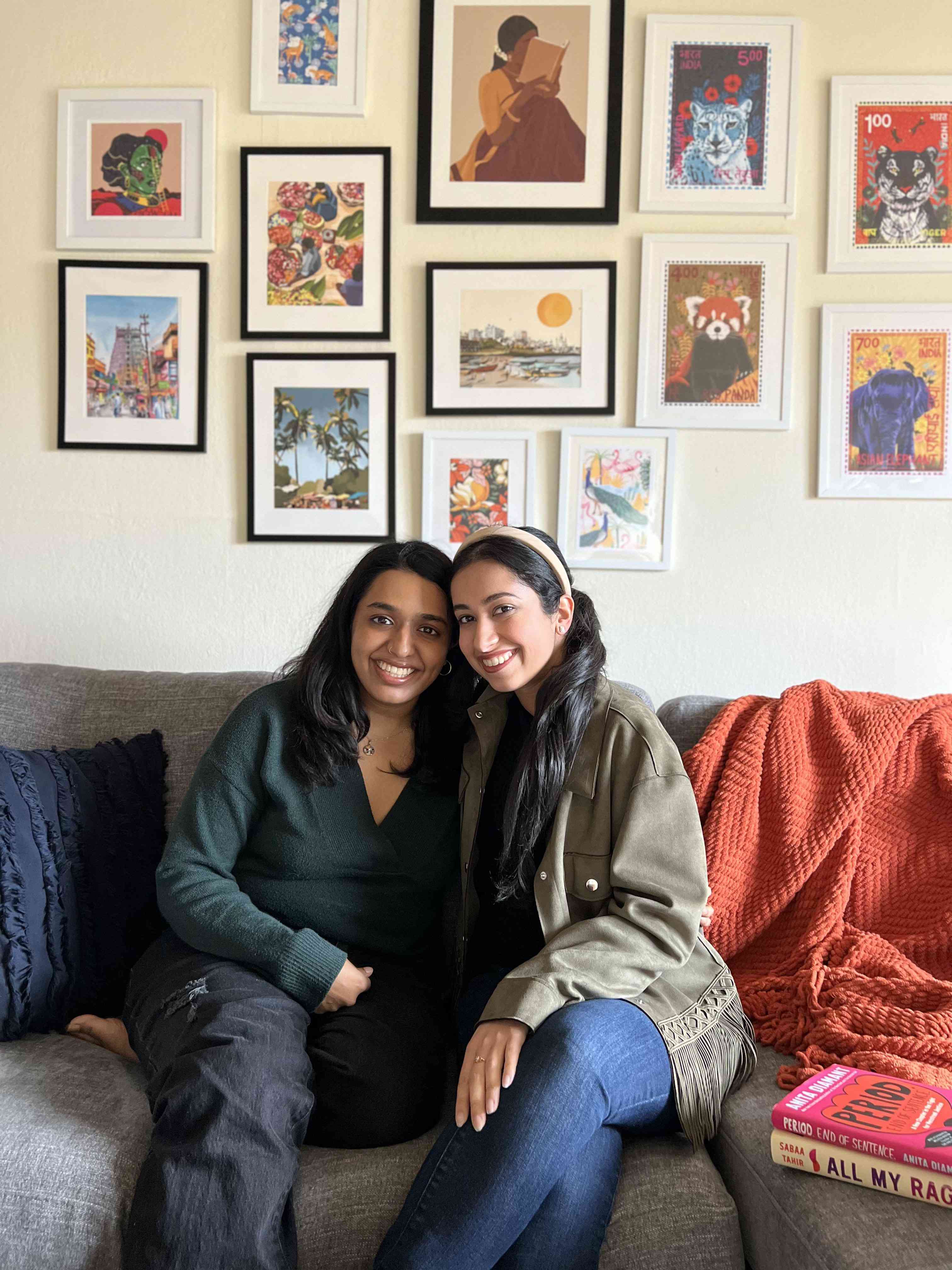
This article first appeared on Scroll.in
📰 Crime Today News is proudly sponsored by DRYFRUIT & CO – A Brand by eFabby Global LLC
Design & Developed by Yes Mom Hosting





